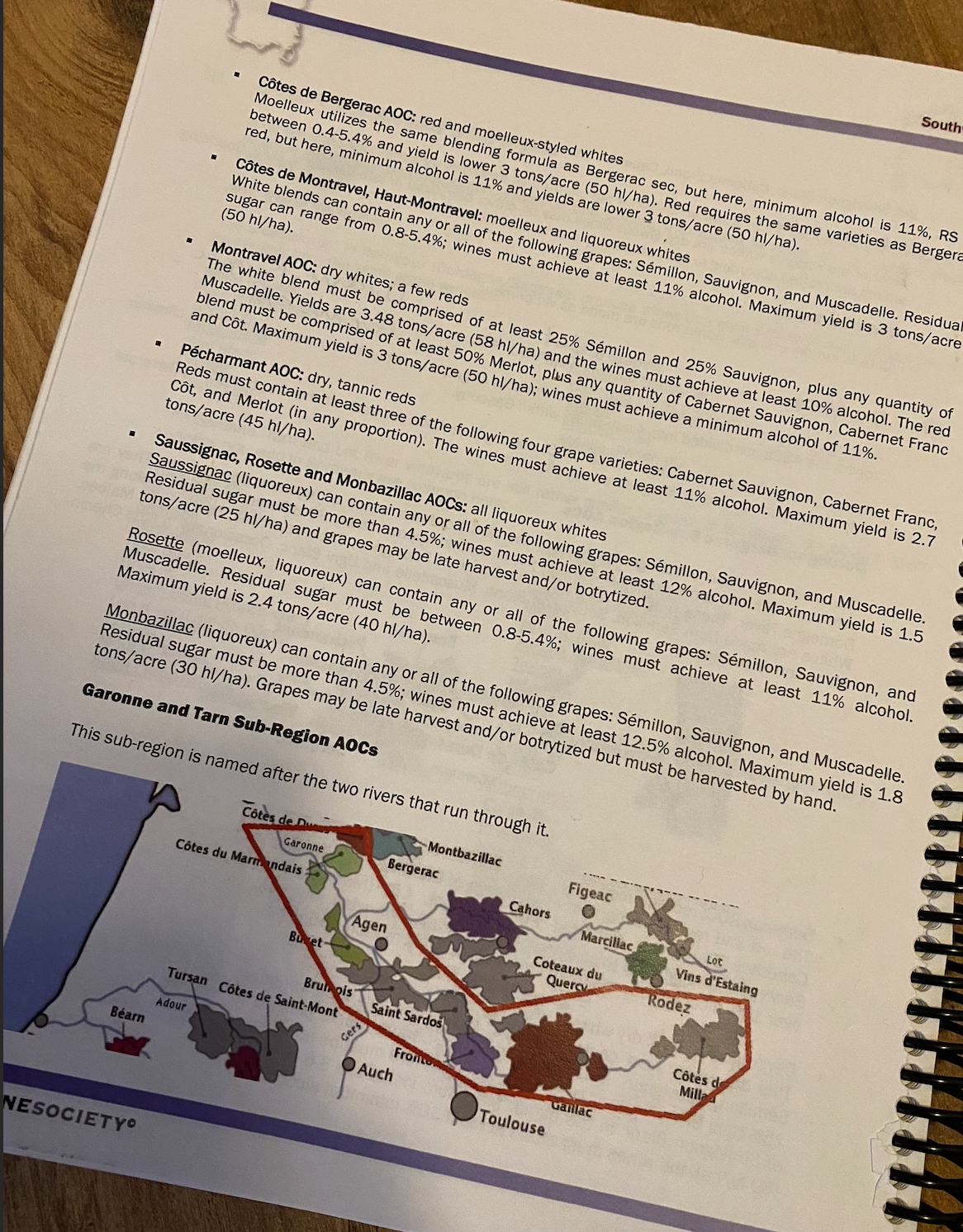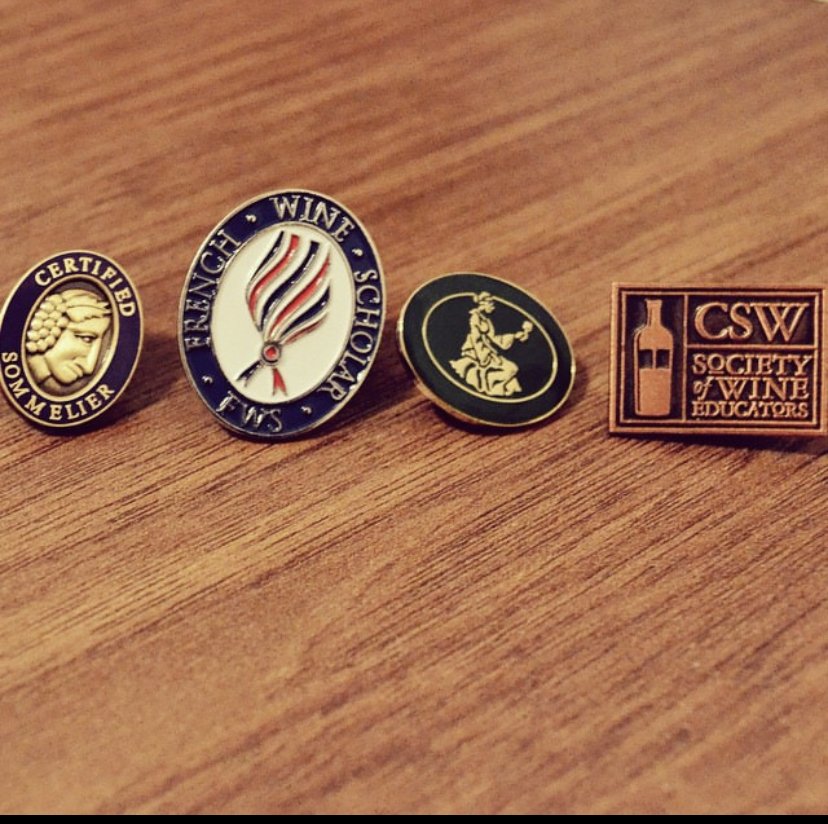Pass French Wine Scholar Exam: Insider Tips and Strategies
If you are passionate about French wine and want to become a certified French Wine Scholar, this blog post is for you! This post will describe the French Wine Scholar certification program and how to prepare for the exam. We will also provide tips and strategies to help you pass the exam. So, whether you are a beginner, professional, or experienced wine lover, read on for all the information you need to know about the French Wine Scholar certification program!
Overview French Wine Scholar
The French Wine Scholar (FWS) certification program is a comprehensive wine education program that focuses on the wines of France. It is designed for wine professionals, enthusiasts, and students who want to deepen their knowledge and understanding of French wines. The program is presented by the Wine Scholar Guild.
The FWS certification program consists of online study modules covering France's major wine regions, including Champagne, Burgundy, Bordeaux, and the Loire and Rhône valleys. The program also covers the history, geography, climate, grape varieties, winemaking techniques, and wine styles of each region. Additionally, the program covers the French wine trade, regulations, and labeling.
To qualify for the certification, candidates must pass a rigorous exam that tests their knowledge of French wines. The exam is composed of multiple-choice questions and wine-tasting analysis. To pass the exam, candidates must achieve a score of at least 75%.
The benefits of obtaining the FWS certification include the following:
Enhanced professional credibility and recognition in the wine and hospitality industries.
Increased knowledge and understanding of French wines can lead to better selections, recommendations, and sales.
Access to a network of distinguished wine professionals from around the world
Opportunities for career advancement and professional development in the wine industry
Include the ability to use the "French Wine Scholar" credential after their name
The FWS certification is recognized by wine professionals and educators worldwide, and it's considered a standard in French wine education.
Study Tips for French Wine Scholars
Here are some study tips and strategies for preparing for the French Wine Scholar (FWS) certification exam:
Understand the format of the exam: The FWS exam is composed of multiple-choice questions. Familiarize yourself with the format of the exam and the types of questions you will be asked.
Use recommended study materials: The Wine Scholar Guild, the organization that presents the FWS program, provides a study manual, flashcards, and other study materials. These materials are designed to prepare you for the exam and are considered the most reliable resources.
Attend review classes: The Wine Scholar Guild offers review classes led by experienced educators. These classes are a great way to review the material and get additional insights and tips.
Practice with sample exams: The Wine Scholar Guild provides sample exams, which are an excellent way to practice and test your knowledge. Use these exams to identify areas where you need to focus more study.
Take notes and organize your study materials: Keeping organized will help you retain the information more effectively. Take notes while studying, and group information by region, grape varieties, and other relevant categories.
Use online resources: Many online resources are available, such as websites and forums, where you can find additional information and connect with other students.
Get hands-on experience: Practicing wine tasting and analysis will help you prepare for the wine-tasting analysis part of the exam. Attend wine tastings or at least taste as many French wines as possible.
Get enough rest and be well-hydrated: Make sure to have enough rest during the exam day. This will help you to focus and perform better.
By following these tips and strategies, you will be well-prepared for the FWS certification exam and have a greater chance of passing the exam and achieving the French Wine Scholar certification.
Why Learn French Wine: The Benefits of Understanding French Wine
The French wine industry is one of the oldest and most renowned in the world, with a rich history and culture that dates back to Roman times. The country is home to some of the most famous and prestigious wine regions, such as Bordeaux, Burgundy, and Champagne, and produces a wide range of wines, including red, white, sparkling, and fortified.
In recent years, the French wine industry has undergone significant changes in production and consumption.
Here are some of the current trends and developments in the French wine industry:
Increase in organic and biodynamic wine production: Many French wineries have started to adopt organic and biodynamic practices, which are considered more sustainable and environmentally friendly. This trend is especially prevalent in smaller, family-owned wineries.
Growth in export markets: French wine exports have been growing steadily, particularly in Asia and the United States.
Shift towards more affordable wines: Consumers are increasingly looking for affordable and accessible wines, leading to a growing market for lower-priced French wines. This trend is driven by younger, more casual wine drinkers looking for easy-to-drink, affordable wines.
New wine regions gaining recognition: Some of France's less well-known wine regions, such as the Savoie and the Jura, are gaining recognition and popularity among wine enthusiasts. These regions are known for producing unique and high-quality wines that are often more affordable than those from more famous regions.
Climate change impact on wine production: Climate change has affected wine production in France. Grapes ripen earlier, changing the taste and quality of the wines. Wineries adapt to these changes by adjusting their vineyard management practices and grape varieties.
The French wine industry faces new challenges and opportunities as it adapts to changing consumer preferences and global market trends. However, the country's long history and reputation for producing high-quality wines ensure that the French wine industry will remain a major player in the global wine market. HIGHEST HONORS.
Passing the French Wine Scholar Exam: My Experience and Tips for Succeeding
In 2014, I took the French Wine Scholar (FWS) exam to deepen my knowledge and understanding of French wines. I had always been fascinated by the rich history and culture of French wines, and I wanted to learn more about the different regions, grape varieties, and styles of French wine.
To prepare for the exam, I used the recommended study materials provided by the Wine Scholar Guild, which included a study manual book and an online study program.
One of the most helpful resources for me was the study manual book the Wine Scholar Guild provided, which was very detailed and comprehensive. It covered France's major wine regions, including Champagne, Burgundy, Bordeaux, and the Loire and Rhône valleys. It also covered the history, geography, climate, grape varieties, winemaking techniques, and wine styles of each region. Additionally, the program covers the French wine trade, regulations, labeling, and wine service.
I also got hands-on experience by attending wine tastings and trying as many French wines as possible. This helped me to develop my tasting and analysis skills and gave me a better understanding of the different wines and regions.
On the day of the exam, I felt well-prepared and confident. The exam consisted of multiple-choice questions, which I felt confident about. I passed the exam with a high score and was awarded the French Wine Scholar certification.
Since then, I have used the knowledge and skills I gained from the FWS program in my professional and personal life. I've made better wine selections, recommendations, and wine servce as a sommelier, and I've also gained a greater appreciation for the complexity and diversity of French wines. To this day, I am still utilizing the book provided by the program, and it's a great reference for me when I am looking for a specific French wine region.
Post-Nominal
Candidates who complete this comprehensive course on French wines and pass the exam are awarded the post-nominal French Wine Scholar (FWS).
There are many important factors to consider when preparing for the FWS exam.
Pay attention to the adjectives (biggest, smallest, highest, lowest, newest, oldest, youngest.
Learn the English translations of French wine terms.
Take mountains, rivers, and soil types.
Know the synonyms for grapes.
Become familiar with the French AOCs and the main grape(s) grown there.
Know French wine history and the significant figures who have contributed to the growth of wine culture in any particular region.
Learn about the particulars of making white, rosé, red, sparkling, late-harvest, and Vin doux Naturel wines. Understand the specifics of carbonic maceration.
Examine your maps. You must be aware of the locations of the wine regions and their AOCs.
Comparison
The French Wine Scholar (FWS) program is one of the most comprehensive and prestigious programs available regarding wine education and certification programs. However, other similar programs may interest wine enthusiasts and professionals. Here's a comparison and contrast of the FWS program with other popular wine education and certification programs:
The FWS program is more comprehensive and in-depth regarding French wines and emphasizes France's history, culture, and regions more strongly than the other courses.
Wine and Spirit Education Trust (WSET): WSET is a global wine education organization that offers a range of wine education and certification programs, including the WSET Level 1, 2, and 3 awards. The WSET programs cover various wine regions and styles, including French wines.
Please click here to read more about WSET
Please click here to read more about WSET Level 3
Society of Wine Educators (SWE): The SWE is a professional organization that offers a range of wine education and certification programs, including the Certified Specialist of Wine (CSW) and the Certified Wine Educator (CWE). The SWE programs cover various wine regions and styles, including French wines.
How to Pass Certified Specialist of Wine? Click here
Court of Master Sommeliers (CMS): The CMS is a professional organization that offers a range of wine education and certification programs, including the Introductory Sommelier and the Master Sommelier. The CMS programs cover various wine regions and styles, including French wines.
How to become a Certified Sommelier? Click here
How to become an Advanced Sommelier? Click here
In conclusion, the French Wine Scholar (FWS) certification program is a comprehensive and rigorous education program that offers a deep understanding of French wines. The program covers the major wine regions of France, including Champagne, Burgundy, Bordeaux, and the Loire and Rhône valleys, as well as the history, geography, climate, grape varieties, winemaking techniques, and wine styles of each region.
To pass the FWS exam, it's essential to use recommended study materials, attend review classes, practice with sample exams, take notes and organize your study materials, use online resources, get hands-on experience, and be well-rested and hydrated. These tips and strategies will prepare you well for the FWS certification exam. You will have a greater chance of passing the exam and achieving the French Wine Scholar certification.
Passing the FWS exam will give you a deeper understanding of French wines and enhance your professional credibility and recognition in the wine industry. It will also give you access to a network of distinguished wine professionals from around the world and opportunities for career advancement and professional development in the wine industry.
In addition to the benefits of obtaining the FWS certification, learning about French wines is a must for any wine enthusiast. French wines are known for their complexity, diversity, and rich history and culture. By learning about French wines, you will gain a greater appreciation for the art and science of wine-making and be better equipped to make informed wine selections, recommendations, and sales.
Please also visit Wine Scholar Guild for more information.
Cheers!
Alper, FWS



